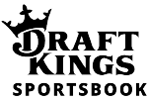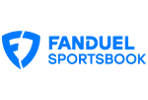Best Sportsbook Promos & Betting Bonuses for March 2026
Sign up for the best welcome betting bonuses of March 2026. We've tested, reviewed, and ranked the best sportsbook promos for US bettors.
Sportsbook Promos Available in Your State Today
- Best in customer support, user feedback, and live bettingCutting-edge live featuresRazor-sharp oddsGAMBLINGPromo Code
The code required to claim this sign-up bonus (if any)
Live StreamingIs there live streaming of sporting events?
YesIn-Play BettingThe number of sports with in-play betting available
15Bet BuilderCan you create your own personalised bets?
YesCash OutCan you cash out of bets before an event has finished?
YesiOS AppDoes it have an iOS App?
Yesbet365 delivers top-tier pricing, unmatched global markets, and real-time updates through Watch & Bet and live audio commentary.
Comparing Our Experts' Top Sportsbook Promos for New Users
| Sportsbook | Promo | Rating |
|---|---|---|
| 1. theScore Bet | First Bet Reset up to $1000 with code GAMBLING | 9.75/10 |
| 2. Fanatics | Claim up to $1K FanCash without code | 8.5./10 |
| 3. BetMGM | $1.5K First Bet + $50 in BetMGM Rewards Points with code GDCBRP1500 or $150 Bonus Bets with code GDCBG150 | 8.25/10 |
| 4. DraftKings | Claim $200 Bonus Bets without code | 7.75/10 |
| 5. bet365 | Claim $150 Bonus Bets without code | 7.5/10 |
| 6. BetRivers | 2nd Chance Bet up to $500 with code GAMBLING | 7.0/10 |
| 7. Caesars | Bet Match Up to $250 with code GAMBLING250BM | 7.0/10 |
| 8. FanDuel | Claim $100 Bonus Bets without code | 6.5/10 |
Why Claim New-User Betting Promos
Sportsbooks provide welcome offers to attract new customers. Most promotions are issued as bonus bets or site credits. Bonus bets are credits given to bettors that can be used to place wagers; if you win, you keep the profit but not the bonus bet stake.
New bettors can explore betting apps with a minimal financial commitment, typically requiring an initial deposit of just $10.
Common Types of Welcome Bonuses
- Bet & Get: Place the minimum required stake, and you'll receive a bonus (i.e., bonus bets, profit boosts, free trials, or merchandise). Some platforms require your bet to win to receive the bonus.
- First-Bet Insurance: This protects your initial wager by offering a refund if your first bet loses. If your first bet doesn’t win, you receive a bonus or site credit equal to your lost wager.
- Deposit Matches: Deposit match promotions are rare welcome offers in which sportsbooks will match your first deposit in your new account up to a certain percentage.
- No-Deposit Bonus: Get a bonus without depositing any of your funds.
Now that we've covered what welcome bonuses are and how they can be structured, let's take a deep dive into our top-rated sportsbook promos.
Our Verdict
theScore Bet's new welcome offer is ideal for mitigating initial risk, whether you're making a small or large first wager. This flexible option makes it an ideal choice for both casual bettors and high rollers alike.
How to Claim
- Click on the link above to start setting up your new theScore Bet account.
- When signing up, enter the promo code GAMBLING if prompted.
- Deposit at least $10.
- Your bet can be on any market at any odds, but wagers placed with a profit boost are not eligible.
- If you lose your bet, you'll receive 100% back in bonus bets, up to $1000, within 72 hours of the bet settling. These bonus bets will be distributed in five installments, each worth 20% of your original wager.
Why We Recommend It
- Bonus bets are credited in five installments, rather than one lump sum, giving you more chances to win
- Low entry point
- Specials, exclusives & pre-packaged parlays available daily
- Automatically enrolled in PENN Play Rewards
Our experts were especially impressed with the promotions for existing users, which we graded as the best in the country. theScore Bet offers an extensive list of daily promotions that rotate constantly, providing bettors with fresh opportunities each day.
The PENN Play program offers significant value, providing bettors with an even greater incentive to engage with theScore Bet.
At a Glance
| Promo Code | GAMBLING |
| Welcome Offer | First Bet Reset up to $1000 |
| Availability | AZ, CO, IL, IN, IA, KS, KY, LA, MD, MA, MO, NY, NC, OH, TN, VA |
| Min. Deposit | $10 |
| Expiration | Apr. 30, 2026 |
| Bonus Bets | Credited within 72 hours of your bet settling & must be used within 7 days |
| Loyalty Program | PENN Play Rewards |
| Ongoing Promos | Odds boosts, profit boosts, bet & get offers, sweepstakes & giveaways, referral bonus |
Note: Offer valid in states listed above only. Michigan, New Jersey, Pennsylvania, and West Virginia customers are eligible for a Bet and Get offer of $100 in bonus bets if you win your first $10 bet.
Our Verdict
Fanatics offers fewer gimmicks and more genuine value. From the lucrative FanCash program to profit boosts and innovative refund policies, it’s a sportsbook designed to reward consistent players, not just first-time depositors.
How to Claim
- Download the Fanatics Sportsbook app using the link above and register a new account.
- Verify your identity and agree to the terms of service.
- Opt in by toggling the promotion* in your bet slip daily.
- Place a cash wager of $1+ on any market with odds of -200 or longer.
- If your wager loses, receive FanCash equal to your losing stake (max $100 per day).
- Continue for up to 10 consecutive days to maximize your rewards.
Why We Recommend It
- Earn up to $1,000 in FanCash with just $1/day in bets
- Low minimum bet ($1) and broad odds requirement (-200 or longer)
- Rewards are issued quickly (within 72 hours).
- New daily reward for several consecutive days
- You can spread out your welcome bonuses over several days
This offer is highly valuable for new users who plan to place a few bets daily. The low barrier ($1) and consistent daily rewards make it one of the more attainable sign-up promos in the market.
Fanatics Sportsbook has quickly earned top marks from our experts for one reason: its promotions set it apart from the competition. The standout is FanCash, a unique system that offers cashback based on the odds of your wager, regardless of whether your bet wins or loses. That’s a perk few other sportsbooks provide, and it makes every bet count.
Note: Offer valid in select states only (see below). Alternative welcome offers are available in other states:
- IN, KS, VA: Bet $5 and get $200 in FanCash instantly.
- NC, TN: Bet $5 and get $400 in FanCash over four days ($100/day).
- NY: Bet and Get offer up to $250 in FanCash, awarded as up to $25 per day over 10 days, based on your bet amount.
At a Glance
| Promo Code | No Code Required |
| Welcome Offers | Get Up to $1,000 Matched In FanCash (AZ, CT, CO, DC, KS, IA, IL, KY, LA, MA, MD, MI, MO, NJ, OH, PA, VT, WV, WY) Bet $5, Get $200 in FanCash (IN, KS, VA) Bet $5, Get $400 in FanCash (NC, TN) |
| Available States | AZ, CT, CO, DC, KS, IA, IL, IN, KY, LA, MA, MD, MI, MO, NC, NJ, OH, PA, TN, VA, VT, WV, WY |
| Min. Deposit | $10 |
| Min. Bet | $1-$5 (depending on the promotion in your state) |
| Min. Odds | -200 or -500 (depending on the promotion in your state) |
| Expiration | Jun. 1, 2026 or Aug. 23, 2026 (depending on the promotion in your state) |
| Bonus Bets | Credited within 72 hours of your bet settling & good for 7 days |
| Loyalty Program | FanCash Rewards |
| Ongoing Promos | Profit boosts & odds boosts, bet insurance for first-quarter injuries |
Our Verdict
This BetMGM offer is ideal for bettors seeking an early confidence boost. If your first bet wins, you keep your cash winnings; if it loses, you’ll receive your stake back as Bonus Bets. You get real rewards for low commitment.
How to Claim
- Sign up by clicking the button above (or tapping if on mobile).
- Deposit at least $10 into your account.
- If you're playing in AZ, CO, DC, IL, IN, IA, KS, KY, LA, MA, MD, MO, NC, OH, TN, VA, or WY: Place your first real-money wager (up to $1,500) with the “First Bet Offer” token applied. If your first bet loses, you’ll receive Bonus Bets equal to your wager (up to $1,500), credited within approximately 24 hours. When you make your deposit, you’ll also receive $50 in BetMGM Rewards Points (this part of the offer does not apply in Massachusetts).
- If you're playing in MI, NJ, PA, or WV: Within 7 days of registration, place your first real-money wager of $10+ at the standard odds price (no boosts/tokens). If your qualifying bet wins, you’ll get $150 in Bonus Bets and your cash winnings, credited within about 24 hours.
Why We Recommend It
- Low minimum $10 deposit and wager
- Significant potential value: up to $1,500 back in Bonus Bets plus $50 in BetMGM Rewards Points for eligible states, or $150 in Bonus Bets in MI, NJ, PA, and WV.
- Clear, fixed bonus bet payout
- Flexible betting options on any sport
- Fast crediting (within 24 hours of bet settlement)
- MGM Rewards is one of the best in the business, especially for travel and live experiences
- Great welcome bonuses and attractive regular offers
BetMGM’s current welcome offers the biggest bang for your buck to jumpstart your bankroll. There’s no such thing as a sure thing in sports betting, but BetMGM’s offer is as close as it gets.
If you win your first bet, you get your winnings. If you lose, you get bonus bets that you can use to recoup as much of your loss as possible. You can’t beat the value of potentially $1,500 in bonus bets to start your sports betting journey.
These offers combine flexibility (you can bet on any sport, at nearly any odds) with a generous maximum payout, giving users room to explore different betting markets with minimized financial exposure.
At a Glance
| Bonus Code | GDCBRP1500 (AZ, CO, DC, IL, IN, IA, KS, KY, LA, MD, MA, MO, NC, OH, TN, VA, WY) GDCBG150 (MI, NJ, PA, WV) |
| Welcome Offer | $1.5K First Bet Offer + $50 in BetMGM Rewards Points (AZ, CO, DC, IL, IN, IA, KS, KY, LA, MA*, MD, MO, NC, OH, TN, VA, WY) $150 Bonus Bets if you Win (MI, NJ, PA, WV) |
| Availability | AZ, CO, DC, IL, IN, IA, KS, KY, LA, MA, MD, MI, MO, NC, NJ, OH, PA, TN, VA, WV, WY |
| Min. Deposit | $10 |
| Min. Bet | $10 (-10000 min. odds) |
| Expiration | July 1, 2026 |
| Bonus Bets | Expire after 7 days, non-withdrawable |
| Loyalty Program | MGM Rewards |
| Ongoing Promos | Odds boosts & profit boosts, second-chance bets, early payouts, jackpots, sweepstakes & giveaways, free-to-play games, referral bonus |
Note: The $50 BetMGM Rewards Points do not apply in Massachusetts.
Our Verdict
While the welcome bonus isn’t the largest among sportsbooks, its simplicity makes it an attractive option for new players who want a quick, straightforward reward. Overall, the ease of claiming the welcome offer, frequent ongoing promos, and a no-nonsense rewards program make DraftKings a strong option for new bettors.
How to Claim
- Sign up for a new DraftKings Sportsbook account.
- Deposit at least $5 into your account.
- Before placing your qualifying wager, select the promotional token in your bet slip.
- Place a $5+ cash bet at odds of -500 or longer.
- If your bet wins, you receive $200 in Bonus Bets.
Why We Recommend It
- Substantial upfront reward: Bonus bets from a $5 qualifying wager
- Rewards are issued instantly if your bet wins
- The bonus is split into eight $25 bets, providing flexibility across various markets
- Can combine the deposit match offer (20% up to $1,000 DK Dollars) with the welcome offer
- Widely available across the U.S.
This DraftKings welcome offer maximizes value for small-stakes bettors by providing instant bonus bets that can be used to explore various sports and markets. This offer is ideal for bettors seeking a high-value bonus with minimal risk. DraftKings' instant issuance of Bonus Bets sets it apart from the competition.
This optimized structure presents the rules in a straightforward way that eliminates any confusion.
At a Glance
| Promo Code | No Code Required |
| Welcome Offer | $200 in Bonus Bets if You Win |
| Availability | AZ, CO, DC, IL, IN, IA, KS, KY, LA, MD, MA, MI, MO, NJ, NY, NC, OH, PA, TN, VA, VT, WV |
| Min. Deposit | $10 |
| Min. Bet | $5 (-500 odds or longer) |
| Expiration | March 15, 2026 |
| Bonus Bets | 8 × $25 single-use bonus bets, non-withdrawable, all expire in 7 days (168 hours) |
| Loyalty Program | Dynasty Rewards |
| Ongoing Promos | Profit & odds boosts, deposit match bonus, birthday bonus, no-sweat bets, bet-and-get giveaways, jackpot pools, referral bonus |
Our Verdict
It’s worth signing up for the bet365 welcome offer. While the platform lacks a loyalty program or referral bonuses, the steady stream of boosts and risk-reducing promotions makes it one of the most reliable sportsbooks for ongoing betting value.
How to Claim
- Register for a new bet365 Sportsbook account by clicking the link above. You must be a new customer and verify your identity. If you see a promo code field during signup, you may enter GAMBLING, but no code is required.
- Deposit at least $10 within 7 days before claiming.
- Claim the offer via the app within 30 days of registration.
- Wager at least $5 total on eligible markets (odds of -500 or greater).
- Receive $150 in Bonus Bets. Additionally, get 50 free spins via the Casino section of the app or site if you’re in PA or NJ.
Note: In all states where bet365 is available (excluding NJ and PA), new customers may opt for an alternative welcome offer: $1,000 First Bet Safety Net. With this offer, if your first bet loses, you get bonus bets equal to the amount you lost.
Why We Recommend It
- Generous reward: $150 in Bonus Bets from just a $10 deposit and a $5+ wager
- There is a low barrier to entry with simple qualifying requirements
- Bonus Bets are credited quickly, usually within one hour
- Flexibility to use rewards in both the sportsbook and the casino
bet365 offers win-or-lose bonus bets when you sign up. If you have a lower risk tolerance, you can wager as little as $5 and get bonus bets, win or lose.
This is a fantastic welcome offer, as new players can wager very little and still have a substantial amount to play with simultaneously.
At a Glance
| Promo Code | GAMBLING |
| Welcome Offer | $150 Bonus Bets |
| Availability | AZ, CO, IL, IN, IA, KS, KY, LA, MD, MO, NJ, NC, OH, PA, TN, VA |
| Min. Deposit | $10 |
| Min. Bet | $5 (min. -500 odds) |
| Expiration | March 17, 2026 |
| Bonus Bets | Expire after 7 days |
| Loyalty Program | None |
| Ongoing Promos | Odds boosts, early payout offers, bet insurance, overtime guarantees |
Our Verdict
BetRivers' welcome offer is worthwhile and great for those who want to minimize their initial risk. But there's room for improvement. It is frustrating that not every state is entitled to the same insurance amount, and it is only available in a handful of states.
While the welcome offer doesn't stand out compared to other operators, the sportsbook compensates for its strong selection of regular promotions and one of the industry's top loyalty programs, iRush Rewards, which offers great long-term value for bettors.
How to Claim
- Sign up for a new BetRivers account by clicking on the link above.
- Use promo code GAMBLING during sign-up.
- Deposit a minimum of $10.
- Place your first bet of at least $10.
- If your first bet loses, you’ll receive a bonus bet in the amount of your initial stake up to $500. Depending on your location, you're eligible for $100 (Iowa & West Virginia), $250 (New Jersey), or $500 (Michigan & Pennsylvania) in second-chance bonus bets.
Why We Recommend It
- Established iRush Rewards loyalty program & referral bonus
- Ongoing promos are great for fans of same-game parlays
BetRivers offers a second-chance bet for new users, giving you a safety net on your first wager.
BetRivers' promotions are primarily focused on the same thing: same-game parlays. With same-game insurance offered for almost every market, it's clear what this operator wants you to bet on. Odds and profit boosts are also included.
At a Glance
| Promo Code | GAMBLING |
| Welcome Offer | $100, $250, or $500 Second-Chance Bet |
| Availability | MI, NJ, PA, WV |
| Min. Deposit | $10 |
| Min. Bet | $10 (min. -200 odds) |
| Expiration | July 1, 2026 |
| Bonus Bets | Credited within 24 hours of bet settling & valid for 7 days |
| Loyalty Program | iRush Rewards |
| Ongoing Promos | House Specials, bet & get offers, parlay insurance, BetRivers Squares, referral promo |
Our Verdict
The Caesars Sportsbook bet match offer is a great way to get familiar with the app and add extra value to your first wager. Whether you're a novice who puts down a few bucks or a veteran handicapper who aims to maximize the potential reward, this offer is high-value and player-friendly.
How to Claim
- Click the link above to register a new Caesars Sportsbook account using promo code GAMBLING250BM.
- Deposit at least $5 into your new account.
- Place a cash wager on any market with odds of -500 or longer within 30 days of registering.
- Receive a Bonus Bet equal to your qualifying wager, up to $250.
- Use your Bonus Bet within 30 days.
Why We Recommend It
- Bonus amount matches your wager, putting you in control
- Generous 30-day expiration window
- You don't need to win your bet to receive a bonus
- Substantial number of creative ongoing promos for existing bettors
This offer stands out for both casual bettors and expert-level players thanks to its flexible entry point.
Your first bet can be as small or large as you like, and you'll receive a Bonus Bet up to $250 in value. With such a low qualifying threshold, you can place a safe wager while being guaranteed a Bonus Bet in return.
Additionally, the 30-day expiration window gives you ample time to use your Bonus Bet strategically. Many other sportsbooks require you to use a welcome bonus within seven days, creating pressure to find winning bets quickly.
At a Glance
| Promo Code | GAMBLING250BM |
| Welcome Offer | Bet Match Up to $250 |
| Availability | AZ, CO, DC, IL, IA, IN, KS, KY, LA, MD, MA, MI, MO, NJ, NY, NC, OH, PA, TN, VA, WV, WY |
| Min. Deposit | $10 |
| Min. Bet | Any cash wager with odds of -500 or longer |
| Expiration | March 18, 2026 |
| Bonus Bets | Must be used within 30 days |
| Loyalty Program | Caesars Rewards |
| Ongoing Promos | Reward multipliers, referral bonus, profit boosts, bet & get offers |
Our Verdict
This promotion offers a great deal of flexibility. You can choose any market and odds, from heavy favorites to long shots, and get your bonus bets in any installments you like, based on your preferences.
While the welcome offers tend to be more basic than those of other competitors and the sportsbook lacks a loyalty program, FanDuel's ongoing promos are consistent and rotate frequently.
How to Claim
- Register a new FanDuel account.
- You must deposit at least $10 (deposits via physical cash locations or PayNearMe are excluded).
- Place your first real-money wager of $5 or more on any eligible FanDuel Sportsbook market.
- If your bet wins and settles during the promo period, you will receive $100 in Bonus Bets credited within 72 hours.
Why We Recommend It
- Only $5 bet needed to qualify
- No odds restrictions make it simple to play
- Bonus issued within 72 hours
- You can choose how your bonus bet installments are paid out
- No minimum or maximum odds limits
- Ongoing promos are consistent and rotate frequently
This offer is one of the most appealing promotions for first-time bettors, as it combines low risk with high potential rewards and ease of use.
It provides a low-risk entry point for new bettors to learn how odds, payouts, and wagering work. Backed by FanDuel’s trusted reputation for secure transactions and fast payouts, the offer gives users confidence and flexibility.
Unlike many promotions with complex rollover requirements, this one is straightforward and free of hidden conditions. It’s transparent, fast, and flexible, a rare combination even seasoned bettors recognize as a top-tier introductory offer.
It gives first-time bettors a low-risk gateway into sports betting and offers one of our experts' top-graded value-per-dollar returns. Because it applies to any sport or market, beginners can bet on what they know best, making it an easy, flexible, and rewarding first-time FanDuel experience.
Note: Users in Indiana and Virginia can take advantage of an alternate offer: 1 No Sweat Token per day, up to $100, for 10 days. Each day, if you lose your bet, you'll receive a bonus bet equal to the amount of your wager, up to $100. You must use your awarded bonus bet within seven days.
At a Glance
| Promo Code | No Code Required |
| Welcome Offer | $100 in Bonus Bets if you Win (AZ, CO, IL, IA, KS, KY, LA, MA, MD, MI, MO, NJ, NY, NC, OH, PA, TN, VT, WV, WY) 1 No Sweat Token, up to $100, every day for ten days (IN, VA) |
| Min. Deposit | $10 |
| Min. Bet | $5 |
| Expiration | March 8, 2026 |
| Bonus Bets | Credited within 72 hours of your bet settling in whatever installments you choose |
| Loyalty Program | None |
| Ongoing Promos | Profit boosts, jackpots, giveaways, referral bonus, no-sweat bets |
More Great Welcome Betting Promos
| Sportsbook | Promo Code |
|---|---|
| Bet Desert Diamond | 100% Deposit Match, up to $250 Bonus Bets: Claim without code |
| Crab Sports | 100% Profit Boost up to $500: GAMB |
| Borgata | $100 Bonus Bets: GDCBONUS |
| betPARX | 100% Bet Insurance up to $50: Claim without code |
| Hard Rock Bet | Double Your Winnings with 10 100% Profit Boosts Tokens: Claim without code |
| Sporttrade | 10% Real Cashback up to $100: GAMBL |
Bet Desert Diamond
Our Verdict: Bet Desert Diamond offers a modest welcome bonus designed to appeal to Arizona users. The smaller welcome bonus is understandable for a sportsbook of this size, but it doesn't compete much with the big-name platforms.
Why We Recommend It:
- Get bonus bets whether your first bet wins or loses
- Bonus bets are broken up into four smaller installments of $25 each
- Unique, fun ongoing promotions
Crab Sports
Our Verdict: The new player offer is slightly above average in potential value. While its ongoing promotions are limited, they are consistent, helpful, easy to use, and tailored for Maryland bettors. However, the lack of a loyalty program is a bummer.
Why We Recommend It
- Bonus is paid out as real cash
- Ongoing promos are unique and easy to claim
- Referral bonus available here
Borgata
Our Verdict: This welcome offer is perfect for frequent New Jersey bettors looking to cash in on lucrative MGM Rewards in Atlantic City. The welcome offer itself won't blow you away, and there are hardly any ongoing promotions for existing users. However, the MGM Rewards that come with your first Borgata bet make it worthwhile.
Why We Recommend It
- You get bonus bets whether your first bet wins or loses
- Can earn MGM Rewards with every bet
betPARX
Our Verdict: This offer reduces the risks associated with making a first sports bet. The low entry cost, combined with flexible betting options and a straightforward bonus structure, allows new users to wager without risking significant real money.
Why We Recommend It
- Protection on your first wager
- Can be used on any betting market with no rollover requirements
- Bonus bets are credited within 24 hours of bet settlement
Hard Rock Bet
Our Verdict: With the Hard Rock Bet promo, you can boost your bankroll right out of the gate over your first 10 bets. Sign up and get 10 100% profit boost tokens, so you can double your payout on each bet.
Why We Recommend It
- Chance to double your winnings over your first ten bets
- With a $50 max bet per token, up to $100 per boost
- 10 separate tokens allow you to test different markets and bet types
Sporttrade
Our Verdict: This new-user promo is ideal for bettors who know what they want to bet on, since you benefit from your initial bets. You must squeeze all your betting into the first seven days to get bonuses from your wagers.
Why We Recommend It
- Only exchange betting welcome offer available in the U.S.
- Can spread out your bonus over the course of several days
- Low minimum bet requirement
- Referral bonus available
How We Rate Sportsbook Promos
Claiming new customer bonuses and existing-player promos are key steps in our sportsbook review process at Gambling.com.
We ensure the welcome offer is realistic and fair to users, and we test ongoing promotions to see how well they reward returning customers.
Sportsbook promos must have transparent terms and conditions to be recommended for our new and existing users, which are critical for informed decision-making.
Unfair or overly restrictive bonus terms erode user trust, and ambiguous language can lead to disputes and a poor user experience.
Our Testing Process
When evaluating sites for Gambling.com, our expert reviewers give a specific grade for the site’s promotional offerings. Strong offers provide value and are easily accessible to all types of bettors.
Each sportsbook promo received grades out of 10. The average of those grades determined our overall rankings. The score out of 10 represents our expert reviewers' overall assessments of the sportsbook's promotions, including:
- Welcome offers
- Offers for existing customers
- Loyalty rewards programs
Our reviews are based on real user testimonials from our experts, who have personally claimed these welcome offers.
Our Expert Reviewers
Where Can I Claim Welcome Betting Bonuses?
Welcome offers and existing promotions can vary by state.
You can claim our welcome offers in the following states:
- Arizona
- Colorado
- Connecticut
- Illinois
- Indiana
- Iowa
- Kansas
- Kentucky
- Louisiana
- Maryland
- Massachusetts
- Michigan
- Mississippi
- Missouri
- New Jersey
- New York
- North Carolina
- Ohio
- Pennsylvania
- Tennessee
- Vermont
- Virginia
- West Virginia
- Washington, D.C.
- Wyoming
You will not be able to claim our welcome offers in the following states: Alabama, Alaska, Arkansas, California, Delaware, Florida, Georgia, Hawaii, Idaho, Maine, Minnesota, Missouri, Montana, Nebraska, New Hampshire, New Mexico, North Dakota, Oklahoma, Oregon, Rhode Island, South Carolina, South Dakota, Texas, Utah, and Wisconsin.
However, you may be able to sign up for social sportsbook promos or free social casino coins, depending on your location.
Today's Top Betting Bonuses for Existing Users - March 4, 2026
College Basketball
- CBB 20% SGP(X) Boost (DraftKings): Get a 20% profit boost on a 3+ leg men's college basketball same-game parlay.
Profit Boost Pack (DraftKings): Get two profit boosts to use on tonight's men's college basketball games. - College Hoops Pick 'Em (Fanatics Sportsbook): In the Fanatics Sportsbook app, open the College Hoops Pick 'Em game, and make picks in 10 games. Those who make the most correct picks win a share of up to $10,000 in FanCash.
- Win $1,500 in CBB Memorabilia (Fanatics Sportsbook): Enter this drawing using $1 in FanCash (max 20 entries per customer per entry period); 20 winners will be chosen on March 10.
- 30% Parlay/SGP Profit Boost (FanDuel): Get this boost to use on any 3+ leg parlay or same-game parlay with odds of +100 or longer.
- $200K Cut the Net Challenge (theScore Bet): Wager $25+ on the NCAAB/NCAAW "Championship Winner" market. If you win your bet, you'll earn an equal share of $200,000 Bonus Bet Jackpot.
- 20% Profit Boost (theScore Bet): Get a 20% profit boost for any college basketball parlay or SGP.
- CBB Odds Boost (BetMGM): Use your token on any men's college basketball bet. Sign in for details.
NBA
- Choose Your Reward (DraftKings): Take your pick between a 30% same-game parlay profit boost and a 20% profit boost to use on any NBA wagers.
- NBA Profit Boost Pack (DraftKings): Get two 20% profit boosts to use on NBA games.
- Choose Your Reward (FanDuel): Take your pick between a 50% same-game parlay profit boost and two 25% profit boosts to use on any NBA wagers.
- NBA Tip Off Pack (Fanatics Sportsbook): Opt in to score two 25% same-game parlay profit boosts.
- $20 First Basket Insurance (theScore Bet): Place a $10+ straight wager on a "Player to Score the First Basket (including free throws)" market for OKC Thunder vs New York Knicks or Atlanta Hawks vs. Milwaukee Bucks and get up to 50% back, up to a $20 bonus bet, if you lose.
- Profit Boost Pack (theScore Bet): Get two profit boosts to use on NBA games.
- $50,000 NBA Flips (Caesars Sportsbook): Play daily for the chance to win up to $50,000 in bonus bets.
- NBA Odds Boost (BetMGM): Use your token on any NBA bet. Sign in for details.
- 30% SGP Profit Boost (bet365): Boost the winnings on any NBA game.
NHL
- NHL SGPx Profit Boost (DraftKings): Get a 30% profit boost to use on a 3+ leg same-game parlay for games that start tonight at 10 pm or later.
- 25% Parlay Profit Boost (FanDuel): Boost your winnings by 25% on any parlay or same-game parlay wager with odds of +100 or longer.
- $10K Hat Trick Jackpot (BetMGM): Place a $10+ Anytime Goal Scorer NHL wager. If the player you bet on has a hat trick (three goals), you'll earn a share of $10,000 in bonus bets.
- Mystery Super Boost (bet365): Tap on the promo in the bet365 app to reveal your boost for Wednesday night's Islanders-Ducks matchup.
Other Sports & Offers
- PropPacks (BetRivers): Place same-game parlays for your chance at $10,000 in bonus credits. Log in at BetRivers for full details.
- 25% WBC Profit Boost (DraftKings): Use this boost for any World Baseball Classic bet on 3/4 or 3/5.
- 20% Soccer Profit Boost (DraftKings): Get a 20% profit boost to use on a 4+ leg same-game parlay wager with odds of +400 or longer.
- Daily Drop Profit Boost (DraftKings): Boost your potential winnings by 20% by using this profit boost token on any sport.
- Tennis 50% Live Boost (DraftKings): Get a 50% profit boost token to use on a 2+ leg live parlay or same-game parlay.
- Apple TV Bet & Get (DraftKings): Bet $10+ on any soccer match to redeem three months of Apple TV.
- 30% WBC Profit Boost (FanDuel): Boost any World Baseball Classic bet on 3/4 or 3/5.
- 30% Profit Boost (Caesars Sportsbook): Opt in to claim a 30% profit boost you can use on a 3+ leg basketball parlay or same-game parlay with odds of +300 or longer.
- 20% Longshot Parlay Profit Boost (Caesars Sportsbook): Get this boost on any bets with odds of at least +1000.
- Golf Winsurance (theScore Bet): Place up to three $25+ bets on a "Tournament Winner" in the Arnold Palmer Invitational and, if the player doesn't win but finishes in the Top 5, get a bonus bet back, up to $25 each based on their finish in the standings.
- Profit Boost Pack (theScore Bet): Get two profit boosts to use on Premier League matches.
- Fast Break (BetMGM): Take a shot on this free-to-play game each day for the chance to win up to a $50 bonus bet.
- Arnold Palmer Invitational Second Chance (BetMGM): Pick a golfer to win this week's tournament and get your stake back in cash if he finishes second (including ties).
- EPL Early Payout (BetMGM): Make any "Match Result" wager on an English Premier League game, and if the team you bet on takes a 2-goal lead at any point during the game, you'll be paid out early, no matter the final result.
- 30% Profit Boost (bet365): Boost any Arnold Palmer Invitational market.
- All Access Daily Boost (Fanatics Sportsbook): Apply a 10% profit boost to any bet.
- Fanatics Daily (Fanatics Sportsbook): Take a chance to win FanCash by making five quick picks for free each day (requires Fanatics online retailer app).
Other Sports Betting Promos for Existing Customers
Odds Boosts: These offer bettors more favorable prices on specific events or markets. To use these effectively, choose bets with higher probabilities of success to maximize the value of the boost.
VIP & Loyalty Rewards Programs: You usually get automatically credited with rewards and/or points whenever you place a bet. Redeem these for benefits, such as dining credits or hotel stays. (Never wager only to earn rewards points.)
Referral Bonuses: Existing users can send a unique sign-up link or referral code and get bonuses when their friends follow the instructions to sign up. The new bettor will get bonus bets as well.
Cashback: This offers a percentage of a bettor’s losses back as a bonus. This is usually credited as bonus bets or site credit.
Reload Bonuses: These match a percentage of a new deposit to existing customers to encourage continued betting.
Event-Specific Promos: These are tied to specific events or tournaments. They can include enhanced odds, bonus bets, or special offers related to major sports events.
How to Claim Betting Promos With or Without a Code
Betting promotions are presented in one of two ways: either with a specific promo code or without one. With the former, you must enter your sportsbook promo code during sign-up or when prompted. With the latter, you must opt into the offer to claim it.
Either way, you'll need to go through each sportsbook's individual identity verification process when you sign up. You won't be able to claim your bonus or start betting until you've been adequately vetted. This is to protect you, your personal information, and your funds.
Watch the video below to see what the registration process looks like:
With Betting Bonus Code
Promo codes are most commonly seen with betting welcome bonuses for new users. Not every sports betting sign-up bonus requires a promo code, but the ones that do only need you to follow a few simple steps to claim them:
- Sign Up: Register with the sportsbook if you're a new user.
- Deposit: Ensure your sportsbook account has the minimum required deposit in your bank account.
- Enter Code: Enter one of the promo codes listed on this page during the signup.
Without a Sportsbook Promo Code
Some sportsbooks offer promotions that do not require a promo code to be entered. This is true for both new users and promos for existing customers.
Here, we look at how to claim those offers:
- Visit the Promotions Page: Browse the sportsbook's promotions page to find available offers. These promotions are typically activated through a simple opt-in button or by fulfilling specific betting conditions.
- Opt-In for the Offer: For offers without a promo code, you may need to click an opt-in button to participate. This button confirms your interest and activates the offer once the requirements are met.
- Fulfill the Offer Conditions: Like with promo code offers, these promotions may still require a minimum deposit or bet, so ensure you meet these conditions.
- Monitor Your Account: After opting in and meeting the necessary conditions, monitor your account to ensure the bonus is applied correctly.
- Contact Support if Needed: If the bonus fails to activate, don't hesitate to contact the sportsbook's customer support team for further assistance.
Sportsbook Promos Terms & Conditions to Know
Always review the terms and conditions of each promotion. Understanding requirements such as minimum bets or eligible games ensures you fully benefit from the offer.
When evaluating sportsbook promos, consider the following factors to ensure you get the best value:
✅ Eligibility: You must be located within a legal state to claim a welcome bonus. You will need to have geolocation services enabled to confirm you're eligible to bet.
✅ Minimum Age Requirement: All bettors must meet the minimum age requirement in the state where they are claiming a welcome bonus.
✅ Account Verification: Your new account must be verified by the sportsbook before you can start using it. This includes verifying your location, age, and identity.
✅ Limits Per User: Each user is limited to one welcome bonus. You must be registering for a new account with your chosen sportsbook for the first time.
✅ Minimum Deposit: Ensure your account is funded using your chosen payment method to receive your welcome offer. This also allows you to enjoy the full menu of features, including live streaming.
✅ Eligible First Bet: Some bonuses may only apply to specific sports, betting markets, or geographic locations. Look for any promotional codes that need to be entered to claim the bonus.
✅ Minimum Bet: Some offers stipulate that a minimum stake must be wagered or that your bet must fall within a specific odds range to qualify for the offer. Odds are typically expressed as a minimum value (e.g., +200).
✅ Expiration Date: Promotions are often time-sensitive, available only within a specified betting window. Similarly, bonus bets awarded as part of these promotions come with expiration dates. Bettors must use these bonuses within the designated timeframe outlined in the terms and conditions before they expire.
✅ Maximum Limits: Some markets have maximum bet limits, and some promos only insure bets up to a particular amount. Note those limits and ensure they align with your betting habits and budget.
✅ Playthrough Requirements: Playthrough requirements stipulate that a bettor must wager a specified number of times before any winnings can be withdrawn. Lower playthrough requirements are generally more favorable; bonus bets typically only have 1-3x playthrough requirements.
Responsible Gambling with Sports Betting Bonuses
Committed to user well-being, Gambling.com always promotes responsible gambling practices with a sign-up bonus, offering tools like deposit limits and self-exclusion options.
Set Limits
Although bonuses are easy to use and readily available, they don't replace sound betting practices. You still need to make sure you're betting within your means and gambling responsibly when using sportsbook promos.
This is particularly important for your first bet. First bet refunds or second-chance bets will often tout a significant total sum that's protected should you lose. You still need to ensure your first bet is within your limits.
Read Terms & Conditions
Bonus bets and similar offers often come with fine print. Don't forget about playthrough (or rollover) requirements. You must meet specific conditions to withdraw bonus funds with the rest of your profits. Most sportsbook promotions require you to wager a certain amount of money before you can withdraw bonus funds.
Tools & Resources
If you know that the requirement to continue betting could become a problem for you, there are responsible gambling tools and resources available at every sportsbook, as well as non-profit groups.
These include cooling-off periods, self-exclusion lists, depositing limits, wagering limits, and blocks on gambling transactions at your bank.
If you or someone you know is struggling with gambling addiction, you can contact the National Problem Gambling Helpline at 1-800-MY-RESET.
Betting Bonus FAQs
What are online sportsbook promos, and how do they work?
Online sportsbook promotions are special offers designed to attract new customers and retain existing ones. You can claim bonuses in a variety of ways, including opting in for an offer, making a minimum first deposit, and entering a promo code. Once you have completed the bonus offer requirements, you'll get a reward like a deposit match offer or bonus bets.
What are sportsbook promo codes?
Bonus codes are a marketing tactic used by online sportsbooks to create hype over a deal. The cipher, typically a combo of a word and a number, is used to activate a bonus and has an aura of exclusivity. In some cases, affiliate partners use bonus codes to attract new players themselves.
How often are sportsbook promo codes updated?
Sportsbook apps frequently update promo code details to keep things exciting for players. The best sportsbooks update promo code offers every one to three months. We will list all the best promo code offers in the US here, so be sure to check back regularly to find the welcome bonus offer that's right for you.
Can I create accounts at multiple sportsbooks to claim all available offers?
Yes. You can have a sports betting account with many different sportsbooks. This is a good idea as it allows you to take advantage of several welcome bonuses. You can only have one account with each sportsbook and can only claim a welcome bonus once from each sportsbook.
Why do sportsbooks offer welcome bonuses?
Sportsbooks issue promo code offers to encourage players to sign up and keep playing. Entering a promo code is a quick and straightforward way to claim sportsbook promotions, making it an appealing option for new bettors learning the ropes. Competition for sports bettors is tough, and a good promo code offer helps a sportsbook to stand out from the competition.
Can I sign up and claim a bonus at offshore betting sites?
Offshore betting sites offer bonuses to both new and existing players. However, we strongly advise against signing up with these sites. Recognized US regulators do not license offshore operators, and accessing them is illegal in the US. There are no guarantees your personal or financial information will be safe at these sites.
Do bonus bets expire?
Yes, most bonus bets have an expiration date. You must use them within the specified timeframe; otherwise, they will be forfeited. Check the terms and conditions of each promo for the exact expiration window.
What are wagering requirements?
Bonus bets often come with wagering requirements. This means you must bet them a certain number of times before you can withdraw winnings from those bets. For example, a $50 bonus bet with a 5x wagering requirement would need to be wagered $250 before winnings could be withdrawn.

























